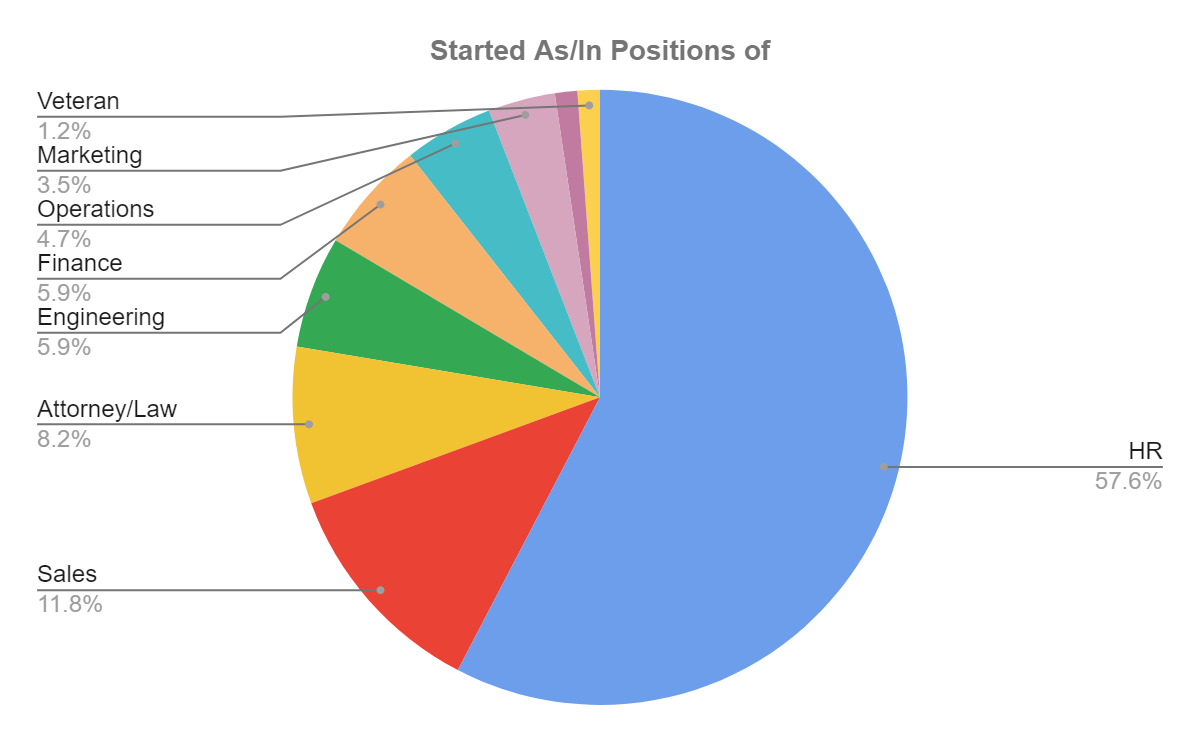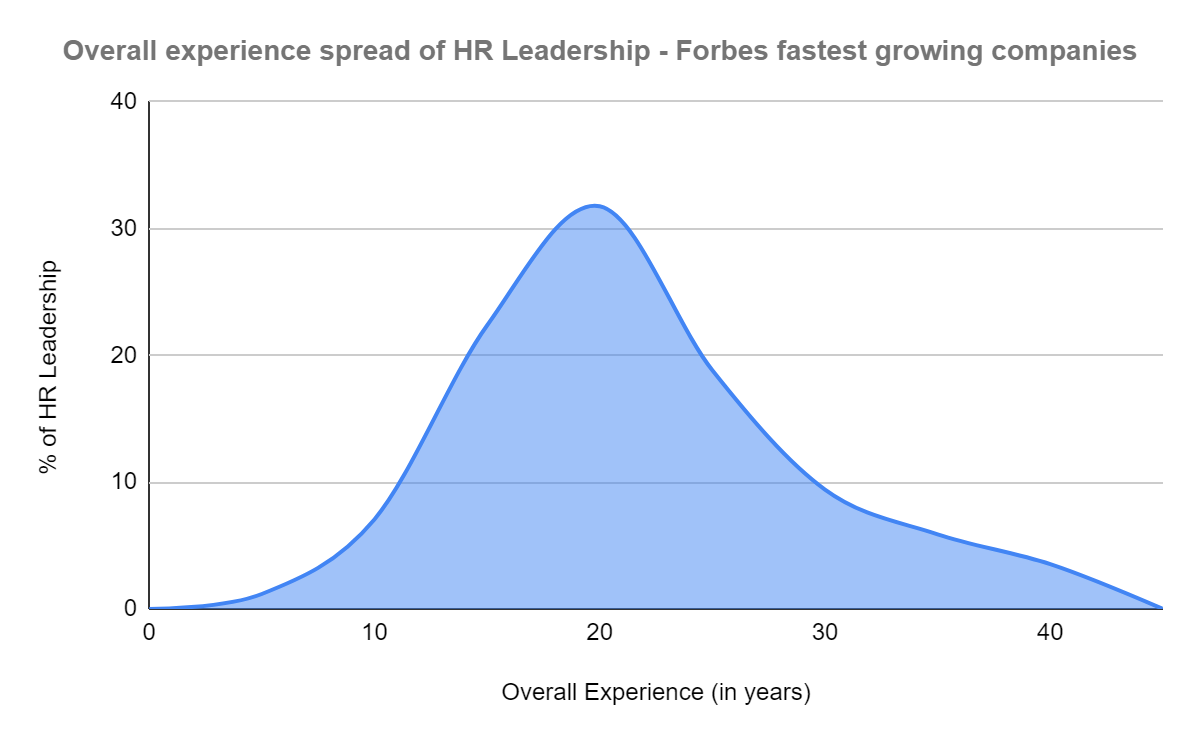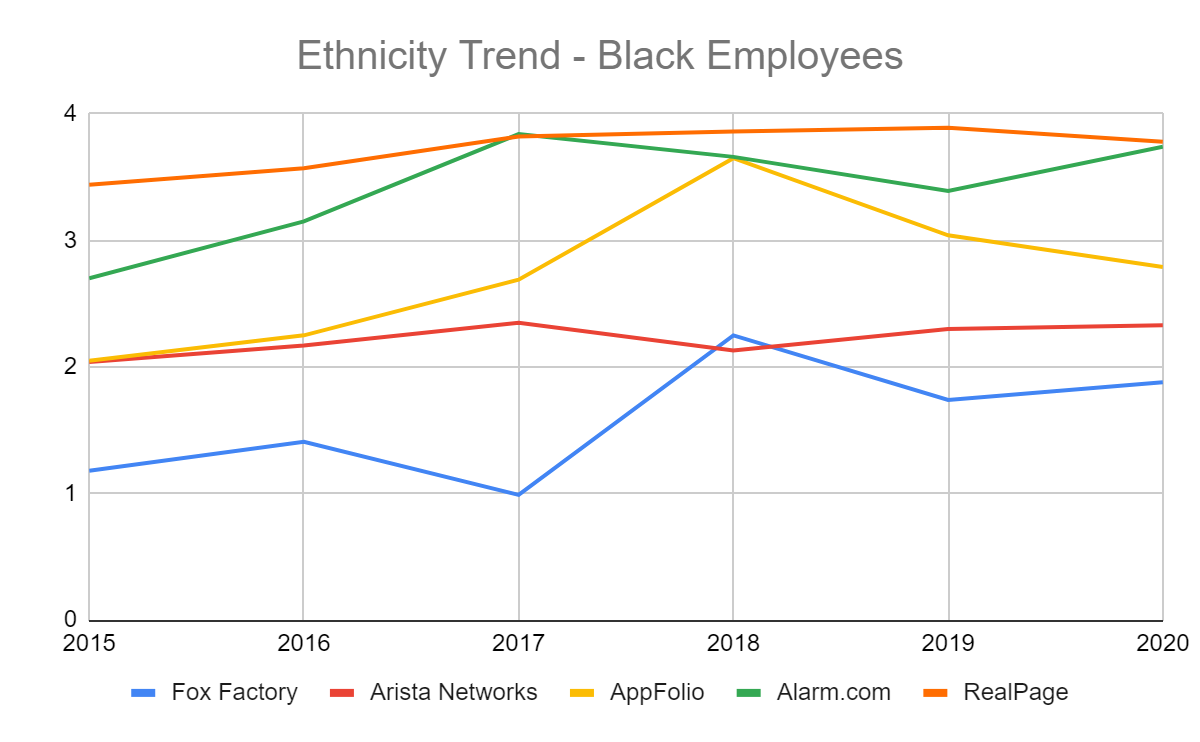In recent years, chief human resource officers (CHROs) and chief people officers (CPOs) have gained more prominence within the corporate landscape. They’re taking a leadership seat at the table alongside CEOs of some of the biggest and fastest-growing companies, helping implement large-scale workforce development strategies and manage talent, capabilities and company culture.
As the CHRO role grows in influence, it is becoming more coveted among senior-level HR professionals who are plotting a career trajectory that eventually leads them to a C-level HR position. However, determining what it requires to move into a role that’s rapidly evolved in recent years can be difficult to decipher. What types of background experiences will best position you for success? What characteristics are key to you thriving in a CHRO or CPO role?
To shed more light on the position and what it takes to for talent leaders to get there, we culled and analyzed all publicly-available data on CHROs* from the 100 fastest-growing U.S. companies, according to Fortune.
From there, we were able to identify four traits that are commonly shared by these leaders.
-
Proportionately High Rate of Higher Education Degrees
Successful HR leaders have a penchant for learning and continue to pursue professional growth, regardless of their current position. Our research found that 99% of CHROs working for the nation’s fastest-growing companies have a degree of some kind – of those, 51% earned a bachelor’s and 49% earned a master’s. Nearly half of those with master’s degrees completed an MBA. These percentages are markedly higher than C-level HR leadership across all U.S. companies (vs. the fastest-growing), of which just 68% hold degrees and 32% have certifications or diplomas.
Their areas of educational focus ran the gamut — the most prevalent were general management, psychology and HR, followed by a combination of finance, marketing, STEM and law. This diversity shows an interest in learning and study as a basis for transitioning into HR.
-
Two Decades of Experience, Diverse Career Starting-Points
A large percentage of CHROs employed by fast-growth companies transitioned into HR from other professional backgrounds. Although the majority (58%) started in HR, nearly half worked in other fields prior to entering the HR stream, including 12% in sales, 8% in law and 6% each in finance and engineering. This suggests that traits such as curiosity, diversity and a willingness to take on new challenges – coupled with a broad professional background – translates to success in a top-level role.
Overall Years of Experience Spread of CHROs/CPOs at Fastest-Growing Companies
It’s no surprise that a CHRO role takes time to achieve. Data shows the majority of HR leaders we studied have amassed 20-25 years of experience, and less than 10% reached their current positions within the first decade of their careers. At the 30-year mark, the distribution of overall experience begins to steadily decrease.
Overall Years of Experience Spread of CHROs/CPOs at Fastest-Growing Companies
From a corporate perspective, companies maintained their fast-growing status irrespective of whether the HR leadership stepping in was organic or inorganic. Of those studied, 56% of HR leaders were promoted to CHRO within their own company and 44% were brought in for the role from outside of the organization.
-
Capacity to Nurture Diversity & Inclusion
On top of their core responsibilities of hiring, fostering and retaining top talent, it’s imperative for today’s CHROs to have the skills required to embed diversity, equity and inclusion (DE&I) throughout their organizations. These initiatives are growing in importance across all types and sizes of businesses and, while they require a company-wide effort, they are typically guided by those holding the most senior HR positions.
When analyzed, the data proved out that CHROs share a passion for diversity and inclusion, striving to build diverse teams and putting strategies in place to further their DE&I initiatives. To draw this conclusion, we selected five of the fastest-growing companies where their CHROs have been employed for at least five years, enabling us to analyze their efforts over time.
The data reveals that these CHROs have put considerable effort into improving gender and ethnic diversity – for instance, growing the number of Black employees. Notably, Fox Factory increased its Black employee base by 59%, and Alarm.com and Appfolio showed increases upward of 30%.
African American Employee Growth in Five of the Fastest-Growing Companies
-
Influence and Communication
Another common trait among CHROs at the fastest-growing companies is a strong online and thought-leadership presence. The majority of those analyzed have a substantial following on social media platforms, regularly publish to a blog, have authored content elsewhere and/or have spoken at events and conferences. On average, these HR leaders have 2,550 LinkedIn followers, though some have accumulated followings in the tens of thousands.
It’s apparent through the data that the top HR leaders are well-versed communicators and seek to position themselves as thought leaders in their industry. Aspiring CHROs can follow suit by cultivating their presentation and communication skills early on, starting to publish relevant content and focusing on building a personal brand. With COVID-19 accelerating the transition to a more remote workforce, it’s a good time to spend the effort to be bolder and more differentiated online.
Becoming a successful HR leader won’t happen overnight. But if you plan ahead and emulate these attributes from professionals at the top of the industry, you’ll carve your own path to get there.
* For companies that do not have a CHRO or CPO listed, the highest HR leadership position was used for the analysis.










